Identifying High-Value Luxury Properties in Emerging Markets
4 April 2025
Luxury real estate has long been a symbol of prestige and smart investment. But how do you know which properties in emerging markets will hold their value—or better yet, appreciate over time? Identifying high-value luxury properties in these developing regions isn't just about picking the most expensive home on the block. It’s about looking beyond the surface, understanding market trends, and making data-backed decisions.
If you’ve been wondering how to spot the next big high-end real estate opportunity, you’re in the right place. Let’s break it down step by step.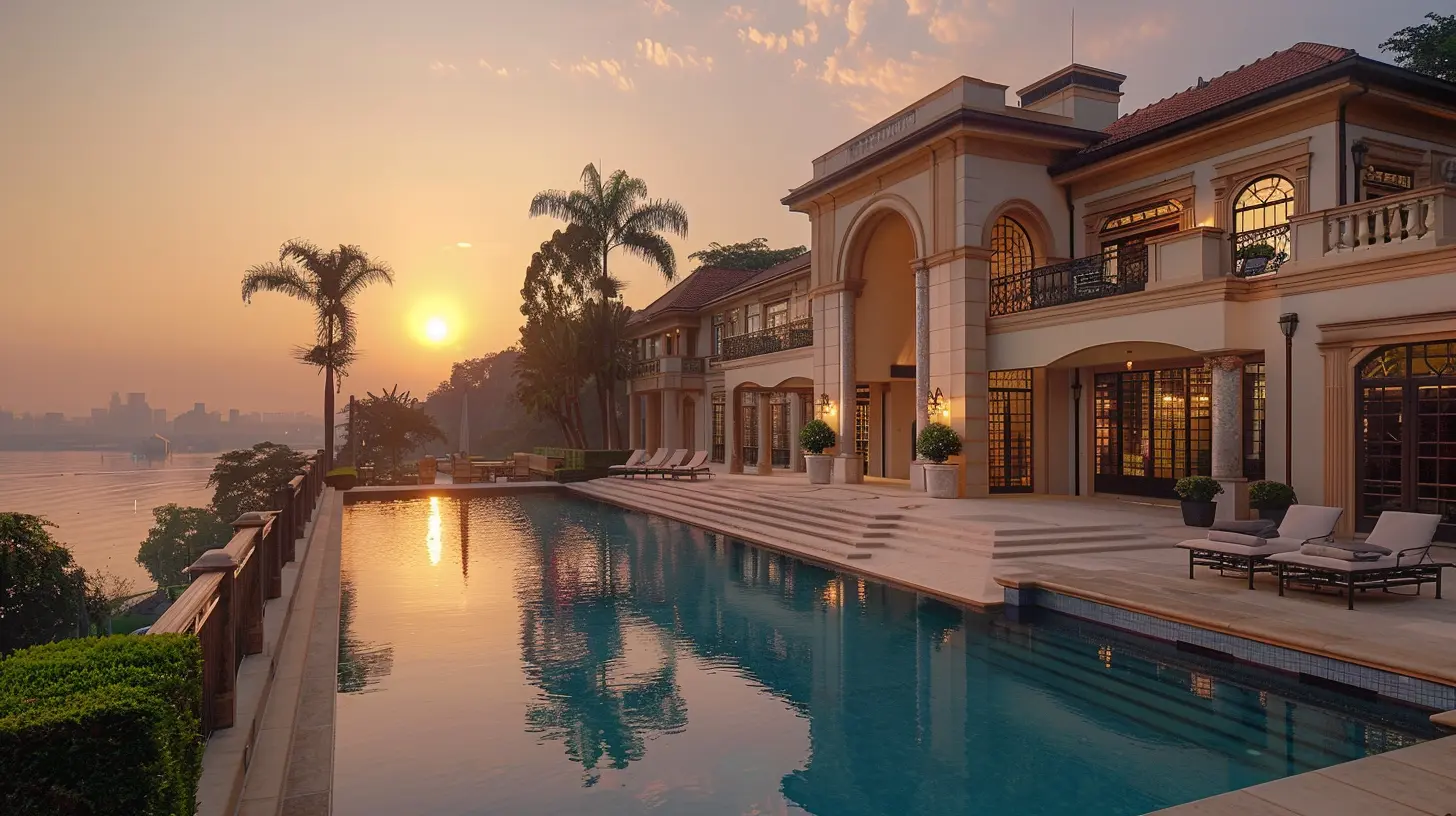
🏡 Why Emerging Markets Offer Unique Luxury Real Estate Opportunities
Emerging markets are a goldmine for luxury real estate investors. Why? Because these markets often offer lower entry costs with high potential for appreciation. While luxury homes in established cities like New York, London, or Paris come with hefty price tags, buying in rising hotspots can mean getting in early on the next international real estate sensation.But here's the thing—just because a region is "emerging" doesn't mean every property is a good investment. Some markets take off, while others stall. So, how do you separate the hidden gems from the financial dead ends? 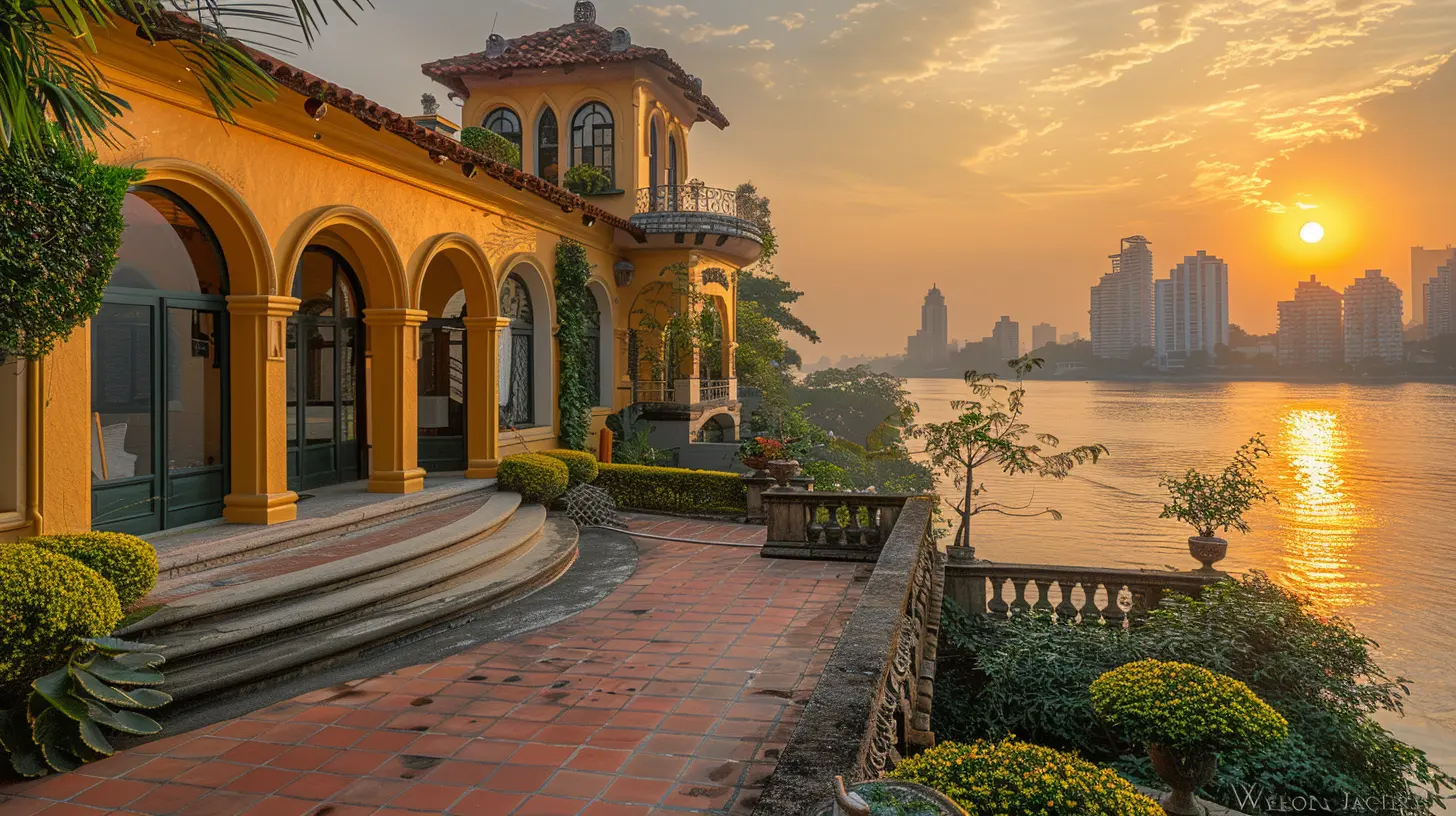
🌏 How to Identify a High-Value Luxury Property in an Emerging Market
1. Look for Strong Economic & Infrastructure Growth
The foundation of any thriving luxury real estate market is a booming economy. A region with rising GDP, increasing foreign investments, and a growing middle and upper-class population tends to be a great place for luxury property investments.Signs of a promising market include:
- New international businesses setting up headquarters
- Government spending on infrastructure like roads, airports, and public transportation
- Increased tourism and hospitality developments
If a country is investing heavily in its future, chances are its real estate market will follow suit.
2. Find Locations With High Demand From Wealthy Locals & Expats
Who’s actually buying or renting high-end homes in the area? A luxury property isn’t valuable unless there’s demand for it. Ideally, you want locations where both wealthy locals and expats are looking to live.Some indicators of strong demand include:
- A rising number of foreign investors entering the market
- A thriving luxury rental sector (great for short-term or long-term rental income)
- Local professionals seeking exclusive residential neighborhoods
Cities like Dubai, Mexico City, or Bangkok have seen luxury real estate booms because they attract high-net-worth individuals from all over the world.
3. Identify Unique Selling Points (USPs) That Set the Property Apart
Not all luxury homes hold their value. What makes a property truly ‘high-value’ is its uniqueness. Ask yourself:- Does the home have breathtaking views of the ocean or skyline?
- Is the architecture world-class, boasting renowned designers or builders?
- Does it offer exclusive amenities like private beach access, concierge services, or smart home technology?
A genuinely valuable luxury home has features that make it stand out in a competitive market.
4. Check Market Stability & Risk Factors
While emerging markets can offer significant upside, they also come with potential risks. Before dropping a large investment, research:- Political stability: Is the government investor-friendly, or are policies unpredictable?
- Property rights for foreigners: Some countries impose restrictions on foreign ownership.
- Currency fluctuations: A weak or volatile currency can impact long-term appreciation.
A little due diligence upfront can save you from costly surprises down the road.
5. Examine Luxury Property Price Trends & Historical Data
You don’t need to be an economist to analyze real estate price trends. A quick look at the past 5–10 years of price appreciation in luxury neighborhoods can tell you if an area is heating up or cooling off.Look for:
✅ Steady (not erratic) price growth over time
✅ Stable rental yields in the luxury rental market
✅ Low property supply (high demand with limited options always drives value)
If prices have been steadily climbing, chances are your investment will too. 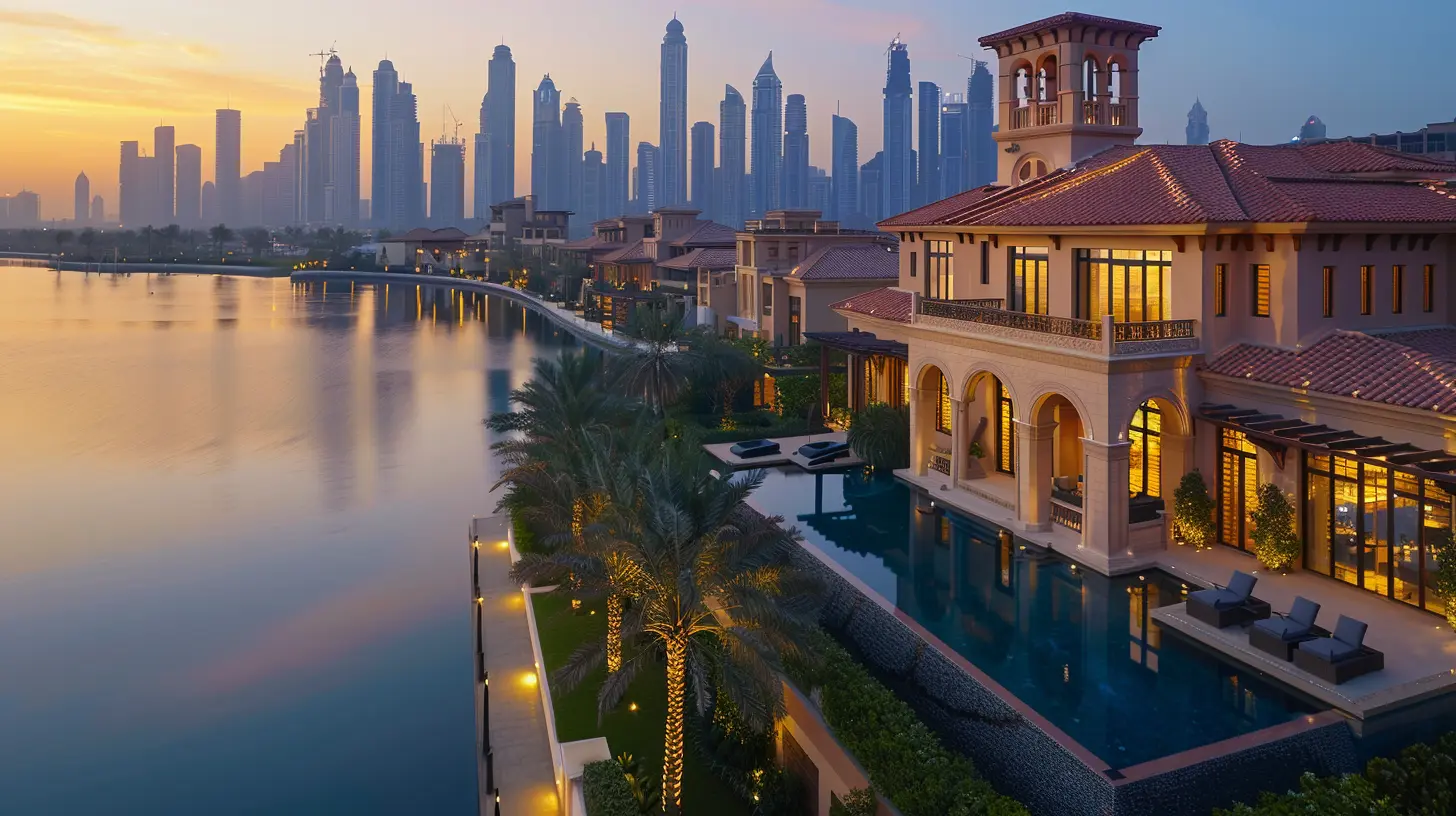
💰 What Types of Luxury Properties Hold High Value in Emerging Markets?
Luxury real estate isn't just about mansions. Depending on the location, different property types hold more value than others. Here’s what typically stands out:1. Beachfront or Waterfront Villas
Exclusive access to pristine beaches or lakes is a major pull for high-end buyers and renters. Luxury villas in places like Bali, Tulum, or Phuket tend to appreciate significantly over time.2. Penthouse Apartments in Prime Locations
Cities experiencing a luxury boom—like Panama City, Istanbul, or Lisbon—offer high-end penthouses with breathtaking skyline views. Urban executives and investors love these properties for their prestige and convenience.3. Private Luxury Estates with Land
In regions where space is a luxury, estate homes with ample land appeal to ultra-high-net-worth individuals. This is especially true in destinations like South Africa’s wine country or Colombia’s lush countryside.4. Branded Residences
Branded properties—those associated with luxury hotel brands like Ritz-Carlton or Four Seasons—automatically hold a premium status. These residences often come with world-class property management, making them hassle-free investments.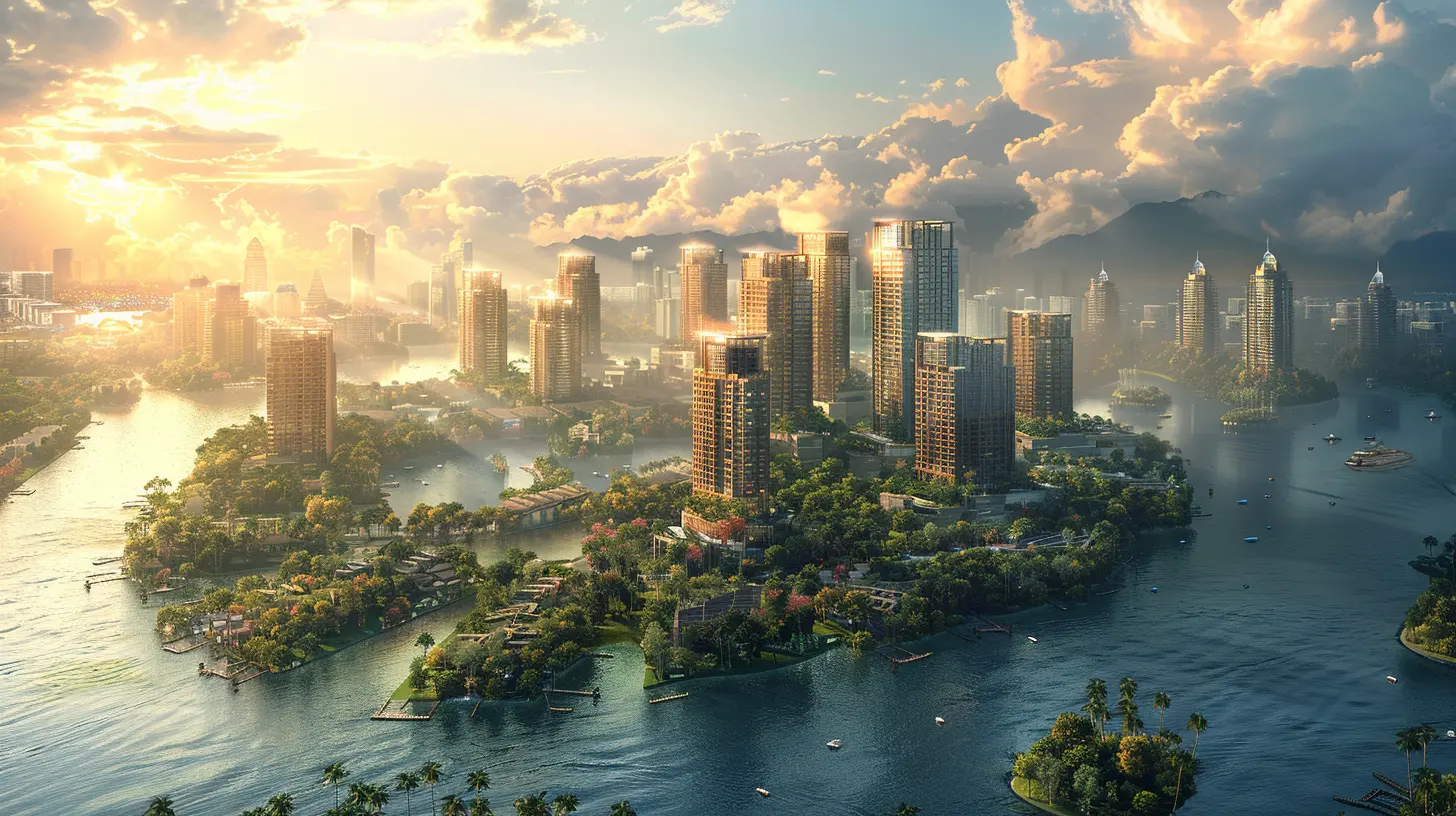
🔥 Red Flags to Watch Out for When Buying Luxury Property in Emerging Markets
Even in promising markets, there are pitfalls to avoid. Stay cautious of:🚩 Overhyped ‘Boomtowns’ – If prices have skyrocketed overnight without a solid economic backbone, it might be a bubble waiting to burst.
🚩 Unregulated Real Estate Markets – If local property laws are unclear or constantly changing, beware of lengthy legal headaches.
🚩 Poor Construction Quality – A luxury home isn’t luxurious if it’s built with subpar materials. Always inspect the quality before buying.
🚩 Hidden Costs & Taxes – Some countries have unexpected fees for foreign investors, such as steep property taxes or complex inheritance laws.
A smart investor knows that a deal too good to be true often is.
🤔 Final Thoughts: Is Investing in Luxury Real Estate in Emerging Markets Worth It?
Absolutely—if you do your homework. The right luxury property in a rising market can bring not just financial gains but also lifestyle perks unmatched elsewhere. Whether you’re looking for a personal retreat or a high-yield investment, emerging markets offer exciting, untapped opportunities for savvy buyers.But remember, the key is patience and research. High-value luxury properties don’t just look good—they have strong fundamentals that promise appreciation and desirability for years to come.
So, if you’re eyeing the next international real estate hotspot, now’s the time to start your journey. Who knows? Your next investment might just be a beachfront villa or a sky-high penthouse in a booming metropolis.
all images in this post were generated using AI tools
Category:
Luxury Real EstateAuthor:

Lydia Hodge
Discussion
rate this article
7 comments
Riff Clarke
Great insights on luxury trends!
May 5, 2025 at 3:45 AM

Lydia Hodge
Thank you! I'm glad you found the insights valuable.
Primrose McNeely
This article offers valuable insights into finding high-value luxury properties in emerging markets. The emphasis on local trends and market dynamics is particularly helpful for investors looking to make informed decisions. It’s encouraging to see how these markets can provide unique opportunities for growth and investment. Thanks for sharing!
April 25, 2025 at 12:42 PM

Lydia Hodge
Thank you for your thoughtful feedback! I'm glad you found the insights on local trends and market dynamics helpful for your investment decisions.
Shannon Wolfe
Emerging markets are the new frontier for savvy investors. Don't wait for trends—seize high-value luxury properties now before the opportunity slips away!
April 12, 2025 at 4:25 AM

Lydia Hodge
Absolutely! Emerging markets offer unique opportunities for investors. Timing is crucial—acting now can lead to significant rewards in luxury property.
Christa Davis
Great insights! It’s fascinating how emerging markets can offer hidden gems in luxury real estate. Identifying these high-value properties requires a keen eye and a bit of risk-taking, but the potential rewards are certainly worth it. Can't wait to explore these opportunities further!
April 10, 2025 at 2:38 AM

Lydia Hodge
Thank you! I’m glad you found the insights valuable. Excited for you to explore these opportunities!
Jasmine Vasquez
This article provides valuable insights into pinpointing high-value luxury properties in emerging markets. Understanding local trends and economic indicators is crucial for making informed investments.
April 6, 2025 at 9:00 PM

Lydia Hodge
Thank you for your insights! I'm glad you found the discussion on local trends and economic indicators valuable for identifying high-value luxury properties in emerging markets.
Solaria Jordan
This article effectively highlights the potential of emerging markets in luxury real estate, but it could benefit from a deeper analysis of socio-economic factors and local regulations that influence investment success.
April 5, 2025 at 2:49 AM

Lydia Hodge
Thank you for your feedback! I appreciate your suggestion and will consider incorporating a more in-depth analysis of socio-economic factors and local regulations in future articles.
Bella Sanders
Like hunting for treasure in a whimsical wonderland, identifying high-value luxury properties in emerging markets is a delightful mix of intuition and adventure! Who knew that the next grand castle could be hiding behind a fruit stand? #RealEstateFairyTales 🏰🍍
April 4, 2025 at 7:49 PM

Lydia Hodge
Absolutely! Discovering hidden gems in unexpected places adds a magical twist to real estate. Cheers to the adventure! 🏰✨
MORE POSTS

How to Stage a Vacant Home Without Breaking the Bank

How Mixed-Income Housing is Shaping Modern Urban Areas

Why Downsizing Might Be the Next Best Financial Move for You
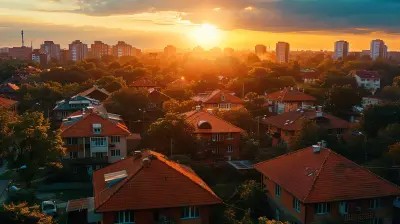
The Rise of Secondary Cities in the Real Estate Market

Being Mindful of the Buyer’s Process: A Seller’s Perspective

Should You Attend Multiple Open Houses in a Day? Tips for Busy Shoppers